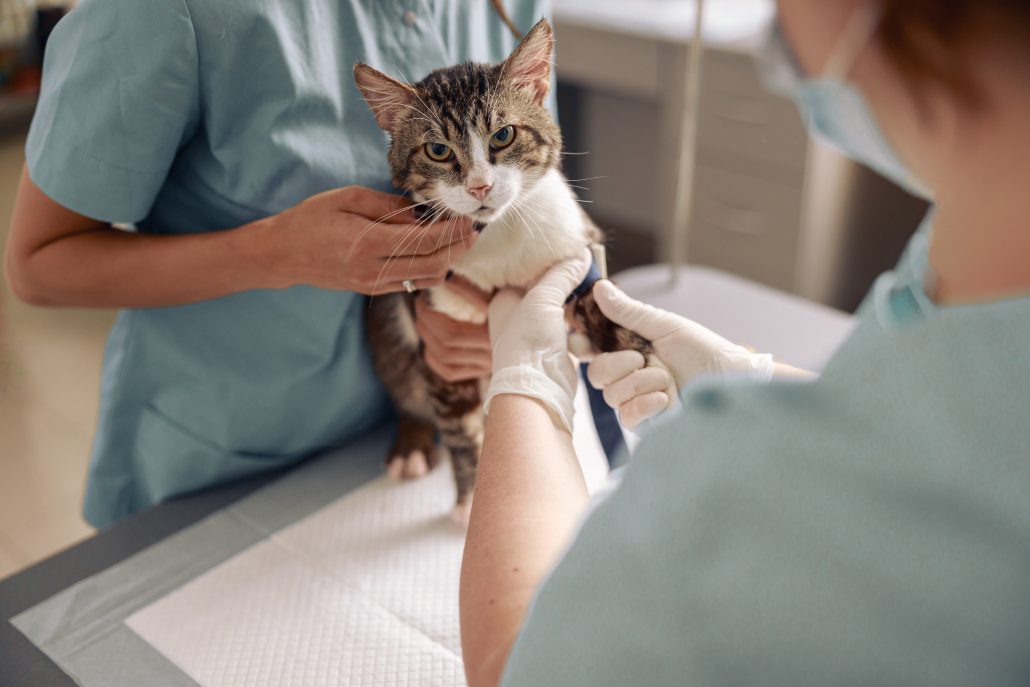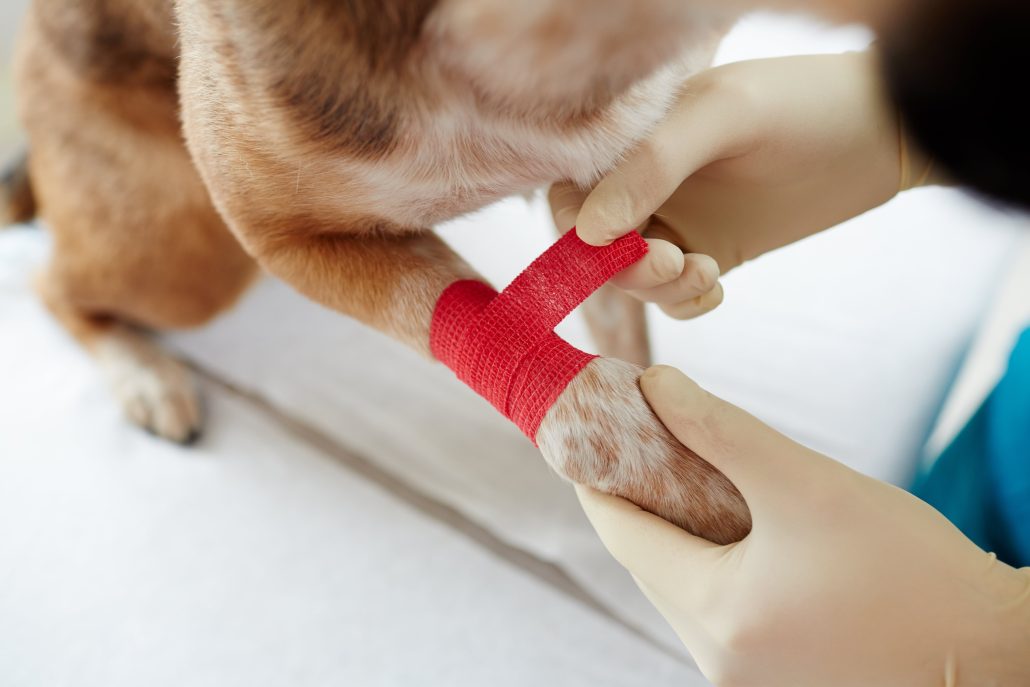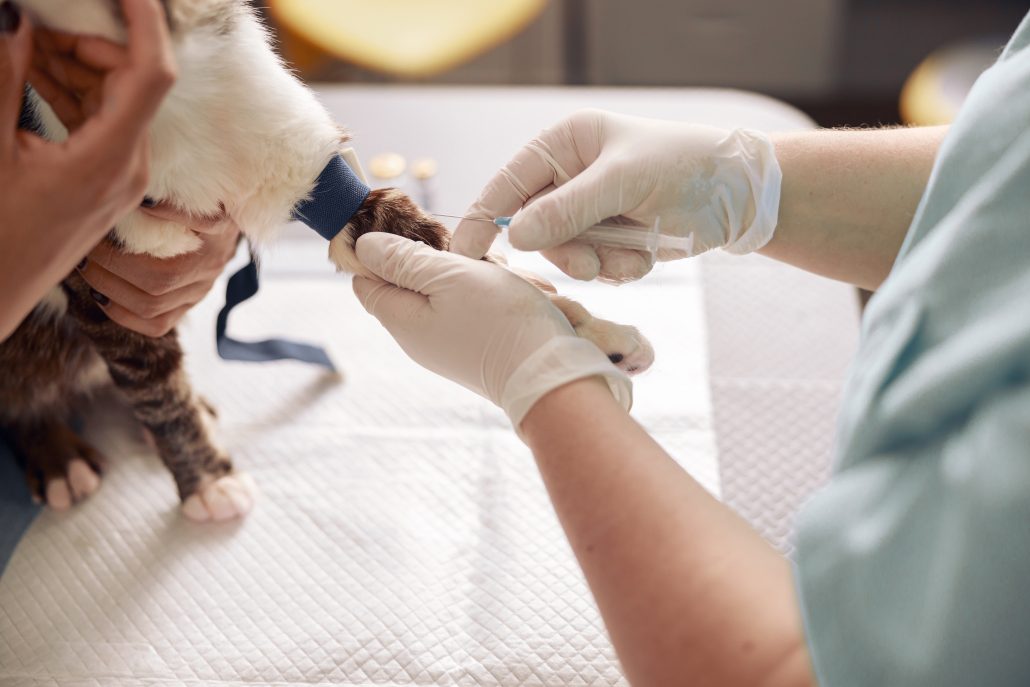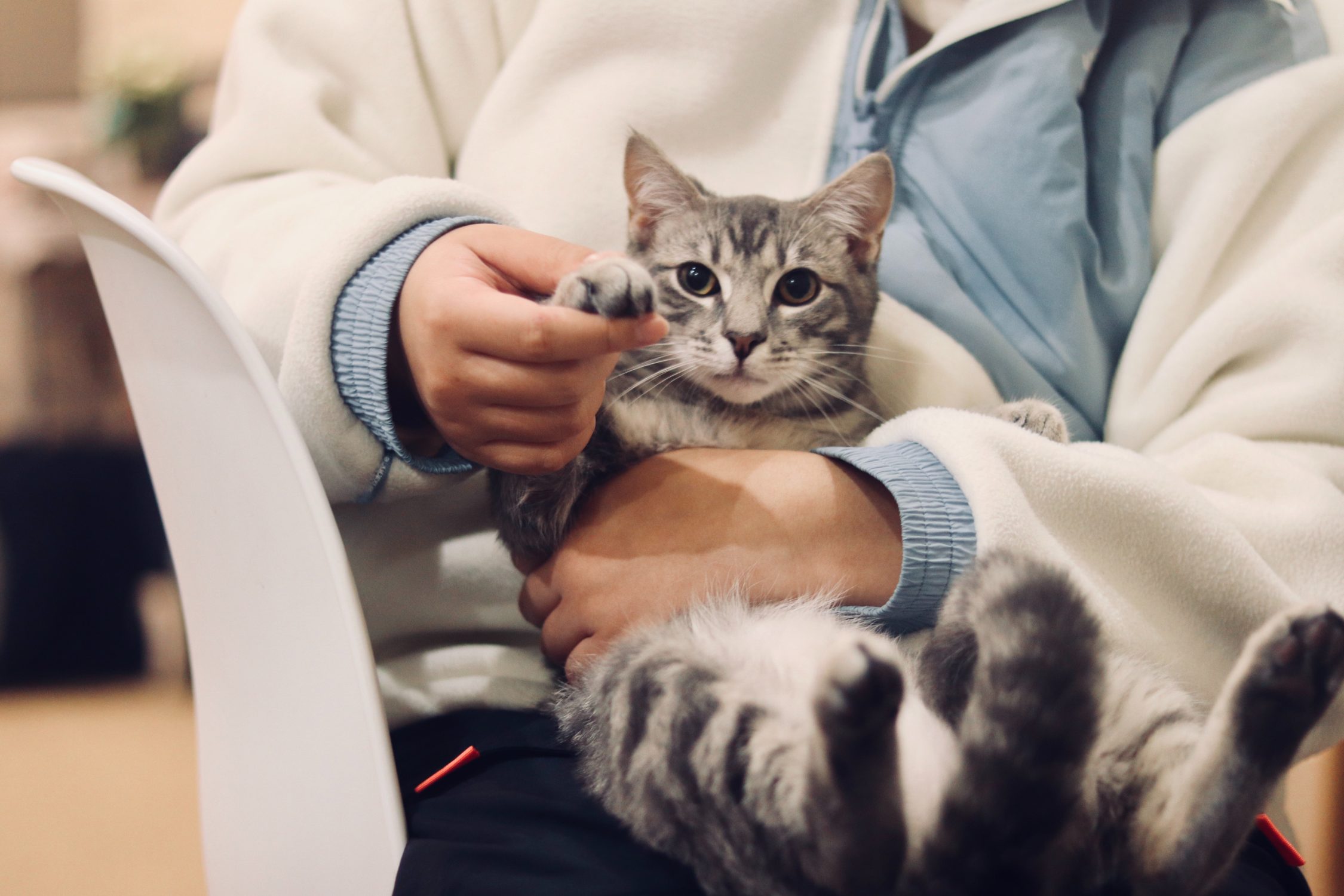Did you know, that just like humans cats and dogs can develop diabetes? Many pet owners are unaware of this relatively common condition and often fail to recognize the signs until it is too late.
This condition is more common in older pets, but can also occur in younger or pregnant pets. Understanding the symptoms and treatments available for diabetes can help your pet live a long and healthy life.
Fortunately, with proper care and timely management, diabetes in pets can be treated successfully. In this post, we will discuss the causes, symptoms and treatments for diabetes in pets.

What is Diabetes?
Diabetes is a chronic condition that occurs when the body can not use glucose (a type of sugar) normally. This is due to an endocrine disorder, specifically a lack of insulin production or inadequate secretion.
Insulin is a hormone produced by the pancreas that regulates blood sugar levels. When this vital hormone isn’t produced or secreted enough, your pet’s body can’t properly absorb sugar, resulting in an excess of sugar (glucose) in the blood.
In diabetic pets, regardless of the source of the sugar or the amount of sugar in the blood, there is not enough glucose to be transported into the body’s cells. As a result, there is not enough energy for these cells to function normally, and causes the body to breakdown fat and muscle tissue.
What Causes Diabetes in Pets?
There are a number of reasons your pet can develop diabetes. Older pets are typically more susceptible to this condition with most dogs diagnosed around 7 – 10 years old and cats at around 6 years old.
It has been observed that female dogs are diagnosed with diabetes twice as often as male dogs with certain breeds with a predisposition to diabetes. These include:
- Miniature Poodles
- Bichons Frises
- Pugs
- Dachshunds
- Miniature Schnauzers
- Samoyeds
- Keeshonds
- Australian Terriers
- Fox Terriers
- Cairn Terriers
- Beagles
- And others
The cat breeds most at risk of developing diabetes include:
- The Russian Blue
- Norwegian Forest Cat
- Abyssian breeds
- And others
Obesity and a lack of exercise are also a significant risk factor for diabetes in pets, as well as certain medications and hormonal imbalances

What Are The Symptoms of Diabetes In Pets?
The signs and symptoms of diabetes in cats and dogs can be quite similar to those in humans and common symptoms include:
- Weight Loss – Even when you’re providing your pet with enough food, they often lose weight because the body is unable to absorb glucose.
- Increased Thirst &Urination – Pets with diabetes will often be more thirsty and urinate much more frequently due to their body’s inability to store sugar properly.
- Lethargy – Because they lack energy, diabetic pets may seem quite sluggish or sleepy throughout the day
- Decreased appetite – Diabetic pets may also experience a decrease in appetite.
- Cloudy eyes (especially in dogs) – One of the most common complications of diabetes in dogs is the development of cataracts, clouding over the lens of the eye.
- Chronic or recurring infections (including skin infections and urinary infections) – This is due to peripheral nerve damage and decreased blood flow to the extremities as diabetes progresses.

What Are The Symptoms of Diabetes In Pets?
At your pet’s regular vet appointment, be sure to mention any changes in behaviour or urination/drinking habits. If your veterinarian suspects diabetes, they will likely recommend blood and urine tests to confirm the diagnosis.
Once a diagnosis is made, your veterinarian can discuss treatment options with you. Treatments for diabetic pets typically involve an initial dose of insulin. Insulin cannot be given orally and must be given by injection. Your veterinarian will teach you how to give insulin injections, which involve a small needle that is often well tolerated by your pet.
Unfortunately, this is not a one-size-fits-all treatment and will require regular check-ups to adjust your pet’s treatment regimen based on the results of monitoring. Similarly, following dietary recommendations are also an important part of managing diabetes in pets. Your veterinarian may suggest a diet specifically designed for your pet.
It is also important to keep an eye on other possible complications of diabetes in pets that can arise due to nerve and blood vessel damage, such as vision loss or chronic infections.

Caring For Your Pet At Home
Diabetes is not curable and requires lifelong treatment. However, with consistency, it can be effectively managed to allow your companion to live a long and happy life!
In addition to medical treatments and checkups, the key to managing diabetic pets is a good fitness regimen and a healthy diet.
For Dogs:
- Maintain a diet that is high in fiber
- Daily exercise. Your veterinarian can assist in developing an appropriate exercise program for your pet, considering factors such as weight, overall health and age.


For Cats:
- A high-protein, low-carbohydrate diet is often recommended.
- While it may be challenging, daily exercise is important. Consider purchasing an interactive toy to capture your cat’s attention and promote physical activity.
Beware Of Insulin Overdose!
It is very important to maintain a proper insulin and feeding schedule for your pet in order to best manage their diabetes. You will also need to regularly check your pet’s blood and urine sugar levels.
Be sure to watch for signs of insulin overdose, symptoms of which include weakness, tremors, seizures and loss of appetite. If you suspect an overdose, contact your veterinarian immediately. As signs of an insulin overdose can sometimes be very similar to signs of an insulin underdose, be sure to monitor your pet’s levels regularly.
Keep Your Pet Healthy
Diabetes is a serious condition that requires consistent monitoring and treatment. However, with proper care and management, your pet can live a long and healthy life! Be sure to visit your veterinarian regularly to monitor their progress, follow diet recommendations, keep up on exercise and stay alert for any signs of complications.
If you have any questions about your pet’s health or management, The House Call Vet can help! We are a team of experienced veterinarians who are dedicated to providing compassionate and convenient pet care. Contact us today to learn more about our services, or to schedule an appointment for your companion. We look forward to hearing from you!

